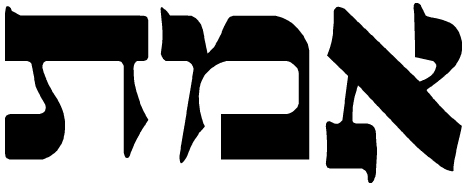From the time of his birth, at the beginning of the book of Exodus, until his death at the end of Deuteronomy, Moses is the Torah’s pre-eminent character. His relationship with both God and the people of Israel, throughout his forty years of leadership, is unparalleled. Thus he is known as Moshe Rabbeynu, Moses, our Teacher. Torah tells us that his prophetic wisdom and vision will never be equaled.
What was the source of Moses’ greatness? Of all his many virtues, this week’s portion, B’ha-alotecha, suggests that the most important is his humility. Thus the text teaches: “Moses was the most humble man on earth.” (Numbers 12:3)
Rabbi Lawrence Kushner comments on the correlation between Moses’ extraordinary humility and his spiritual mastery. In his book, I’m God, You’re Not, Rabbi Kushner notes: “The goal of spiritual life is to get your ego out of the way. Silence the incessant planning, organizing, running, manipulating, possessing, and processing that are the ineluctable redoubts of the ego. Not because these activities are bad or wrong or even narcissistic. . . but because they preclude an awareness of the Divine. To paraphrase the Talmud, God says, ‘There ain’t enough room in this world for your ego and Me. You pick.’”
In other words, humility is at the heart of Moses’ greatness because it is an essential pre-requisite for our moral and spiritual development. When we become too full of ourselves, we forfeit our connection to God, wisdom, and authentic relationships [which may, in the end, all be synonymous]. If we wish to grow as people and as Jews, we must free ourselves from our inflated self-importance and insistence that we are constantly “right.”
Two hundred years ago, the English poet John Keats expressed this same notion in his theory of “negative capability”, which he described as “when man is capable of being in uncertainties, mysteries, doubts, without any irritable reaching after fact and reason.” Keats points to Shakespeare and Coleridge as masters of this art, but we, as Jews, might look back farther, to Moses, as our guide.
******
Humility—in Hebrew, anavah—plays a central role in the Mussar tradition. Among the midot, it is foundational because as Rabbi Kushner notes, above, a person who lacks humility—who thinks they are better than others—cannot really learn and grow.
But the Mussar masters remind us that it is critical to avoid confusing humility with humiliation, which is all too common a mistake. Being humble does not mean being a self-debasing nobody; real humility is, instead, grounded in healthy self-esteem. As with most midot, the goal is to maintain a proper balance between arrogance and self-loathing. Humility is about occupying the proper amount of space in one’s life: stepping up when called upon to do so, while also leaving room for others. Moses’s extraordinary humility does not preclude his assuming bold leadership; indeed, an essential part of it. As the contemporary Mussar teacher Alan Morinis puts it in his beautiful book, Everyday Holiness: “No more than my space, no less than my space.”
**********
Mussar Practice for this Week:
Write yourself a note with the phrase, “No more than my space, no less than my space” and carry it around with you, reading it regularly over the course of the day.
What does the practice of humility look like for you in your work and/or family life?



